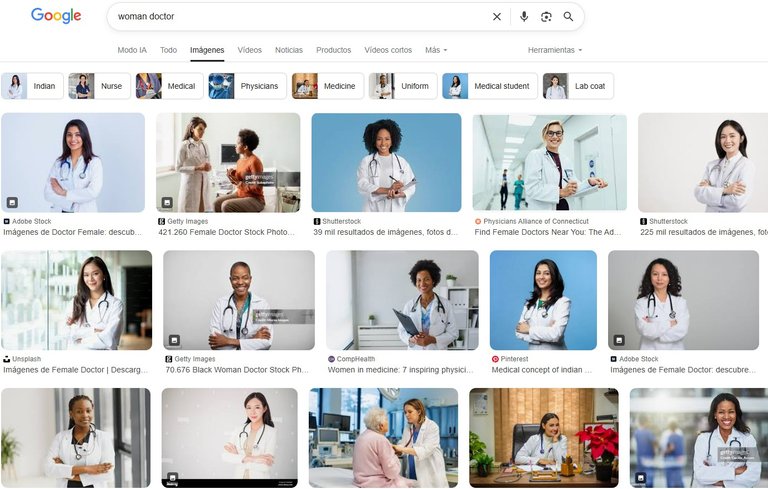Gender and age stereotypes are reinforced by the internet and AI

Women in various professions and social roles on the Internet and AI are younger and less experienced than men. And this difference does not correspond to real data (compared to U.S. data). This conclusion has been drawn in a paper published in Nature. The researchers point out that it is a significant obstacle in the fight against gender inequality because it reinforces and perpetuates gender and age stereotypes, which, for example, could limit access to positions of responsibility.
On the one hand, researchers have analyzed 1.4 million images and videos on five platforms (Google, Wikipedia, IMDb, Flickr and YouTube), measuring the average ages of women and men representing different professions and social roles. It has been observed that women are represented as younger than men, especially in professions of higher status or gain, such as doctors or bankers. For example, in the case of doctors, the search results showed that the male was between 25 and 34 years old, and the female was between 18 and 24 years old.
On the other hand, nine large language models (which are trained with Internet data) have also been studied and found to exacerbate this trend. For example, Chat GPT was asked to create 40,000 CVs for 54 professions. The results showed that ChatGPT made female candidates on average 1.6 years younger than men. In addition, when asked to rate these resumes, ChatGPT considered older candidates, men, to be of higher quality than women.
The results show how online resources and large language models can distort and perpetuate gender and age stereotypes, and also show that AI models not only capture these biases but actively reproduce them. The researchers stress that all this can lead to disadvantaged groups being discriminated against in real life.
Buletina
Bidali zure helbide elektronikoa eta jaso asteroko buletina zure sarrera-ontzian











